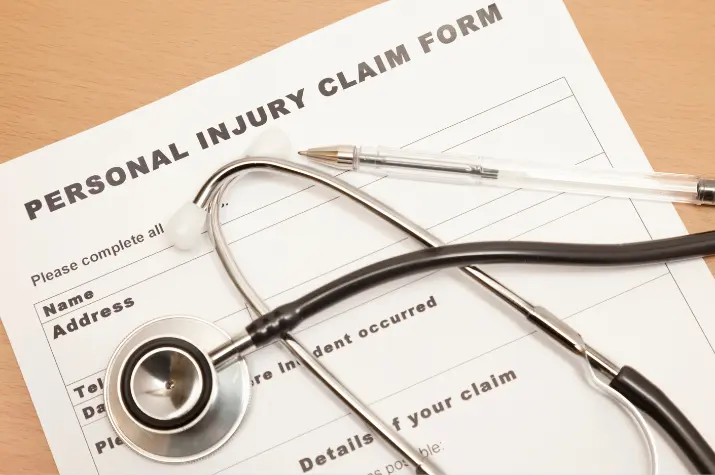
When we think of personal injuries, our thoughts tend to leap to the visible: the casts, the crutches, the stitches, and the physical rehabilitation.
Yet beneath the surface of the more tangible wounds lies a deeper, more insidious trauma that is often overlooked: the emotional and psychological toll these injuries inflict.
In the aftermath of an accident, while the physical pain may be the most obvious symptom, it’s the silent struggle within that can be the most debilitating. Personal injuries extend far beyond the physical realm, touching every aspect of a victim’s life, from their mental health to their relationships and their ability to enjoy life.
Pennsylvania personal injury attorneys see in their clients not just the struggle to recover physically but also the battle to reclaim emotional stability and peace of mind.
The Emotional Impact of Personal Injuries
The repercussions of personal injuries encompass more than physical therapy, medical bills, and lost income, often reaching deep into the emotional and psychological well-being of victims.
A few of the more common emotional effects experienced following an accident, which also includes physical injuries, include the following:
- Post-traumatic stress disorder (PTSD): A condition marked by lingering fear, anxiety, and reliving of the traumatic event, affecting victims’ ability to lead normal lives.
- Depression: Characterized by overwhelming sadness, loss of interest in life, and a pervasive sense of hopelessness, hindering both emotional and physical recovery processes.
- Anxiety: Beyond general worry, anxiety can manifest as specific fears related to physical injury or accident, impacting daily functioning and rehabilitation efforts.
- Loss of enjoyment of life: Injuries often prevent victims from engaging in hobbies and activities they once loved, leading to a profound sense of loss and disconnection.
- Sleep disorders: Disruptions in sleep patterns, including difficulty falling or staying asleep, exacerbate physical and emotional healing challenges.
For personal injury victims and their legal representatives, acknowledging the full spectrum of suffering is essential for seeking comprehensive support and appropriate compensation for another party’s negligent actions.
Can You Get Compensation for Emotional Implications of Personal Injury Claims?
The short answer to this question is yes. The law acknowledges the deep emotional and psychological impact injuries can have, allowing for claims that encompass non-economic damages.
These damages help to provide relief for these intangible aspects, such as pain and suffering, loss of enjoyment in life, and the overall emotional toll, which, although less quantifiable than economic losses, are equally significant.
Quantifying emotional distress involves evaluating the severity of the injury and the impact on the victim’s daily life, which can be substantiated through mental health evaluations, personal accounts, and observations from loved ones.
Thorough documentation and experienced legal representation ensure that the emotional suffering is accurately represented and compensated. Skilled personal injury lawyers can play an important role in this process, helping victims obtain compensation that reflects the true extent of their emotional and psychological suffering.
How to Prove Emotional Impact Due to Your Injury

Proving and demonstrating the emotional impact of personal injury cases is essential for comprehensive compensation claims.
Here’s a condensed guide to effectively demonstrating the extent of emotional distress:
- Documentation and personal accounts: Start with maintaining a personal diary that captures your emotional state, instances of distress, and the daily impacts of your injury. Detailing experiences and emotional challenges provide a basis for your claim.
- Mental health professional evaluations: Obtain evaluations from mental health experts. Professional diagnoses of conditions like PTSD or depression as a direct result of suffering a personal injury offer objective evidence of emotional trauma.
- Impact on daily living: Show how your emotional distress affects everyday activities and relationships. Include difficulties in work, social engagement, or leisure activities, supported by your testimony and statements from people close to you.
- Legal representation: Engage a reputable personal injury law firm. Experienced legal guidance is crucial for compiling and presenting your evidence effectively to maximize your compensation.
By following these steps to demonstrate the emotional impact of your accident-related injuries, you can build a compelling case that underscores the emotional toll of your injury, paving the way for appropriate compensation.
Coping With the Emotional Impact of Personal Injuries
The emotional aftermath of a personal injury requires a comprehensive approach that addresses harm to both the mind and the body. Seeking professional support is a critical first step; mental health professionals can offer therapeutic strategies that help manage emotional distress, providing a safe space to process feelings and develop mechanisms to cope with emotional distress.
Mental health professionals can also prepare expert reports establishing the causal connection between your accident and your emotional distress. Equally important is the support from friends, family, and support groups, which can alleviate feelings of isolation by sharing experiences and offering comfort.
Maintaining some level of physical activity, as allowed by your recovery, plays a pivotal role in reducing stress, improving mood, and enhancing overall well-being. Developing healthy routines also contributes to a sense of normalcy and control during this challenging time. Incorporating activities that promote relaxation and mindfulness, such as meditation, reading, or listening to music, can help restore balance to your daily life.
Focusing on aspects of your life and recovery that you can control, such as setting small, achievable goals, offers a sense of accomplishment and forward momentum.
Additionally, understanding your rights and exploring options for compensation with the help of an experienced personal injury attorney can not only alleviate financial stress but also contribute to a sense of justice and emotional closure.
Conclusion
Adopting these strategies forms a holistic approach to coping with the emotional impact of personal injuries, fostering resilience and hope on the path to recovery. This adaptive strategy ensures that individuals do not have to go through their healing process alone, providing them with the tools and support necessary for emotional and physical recovery.
About The Author:
Stacey Smith is a freelance health writer. She is passionate about writing about women’s health, dental health, diabetes, endocrinology, and nutrition and provides in-depth features on the latest in health news for medical clinics and health magazines.

![[Infographic] Fostering Emotional Intelligence in Children Through Parental Self-Understanding Emotional Intelligence in Children](https://www.safeandhealthylife.com/wp-content/uploads/2023/10/Emotional-Intelligence-in-Children-150x150.webp)


